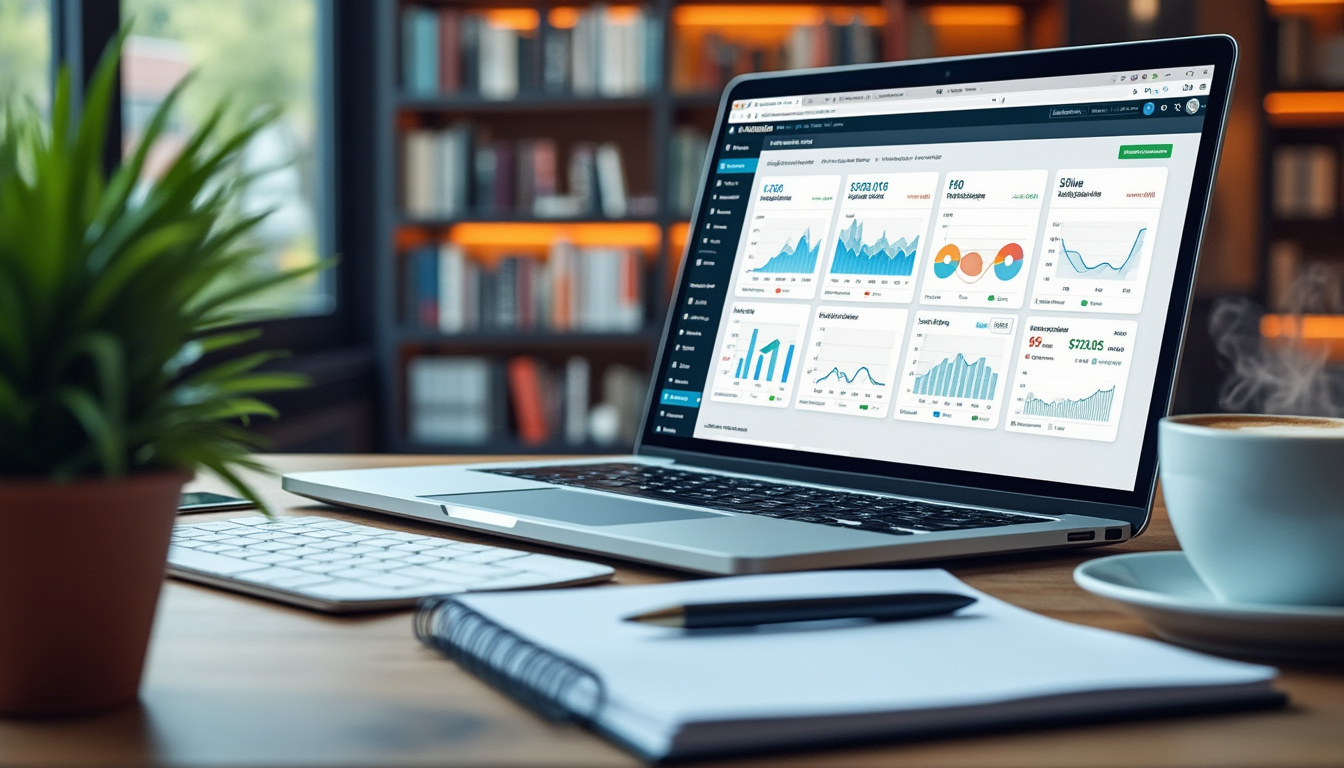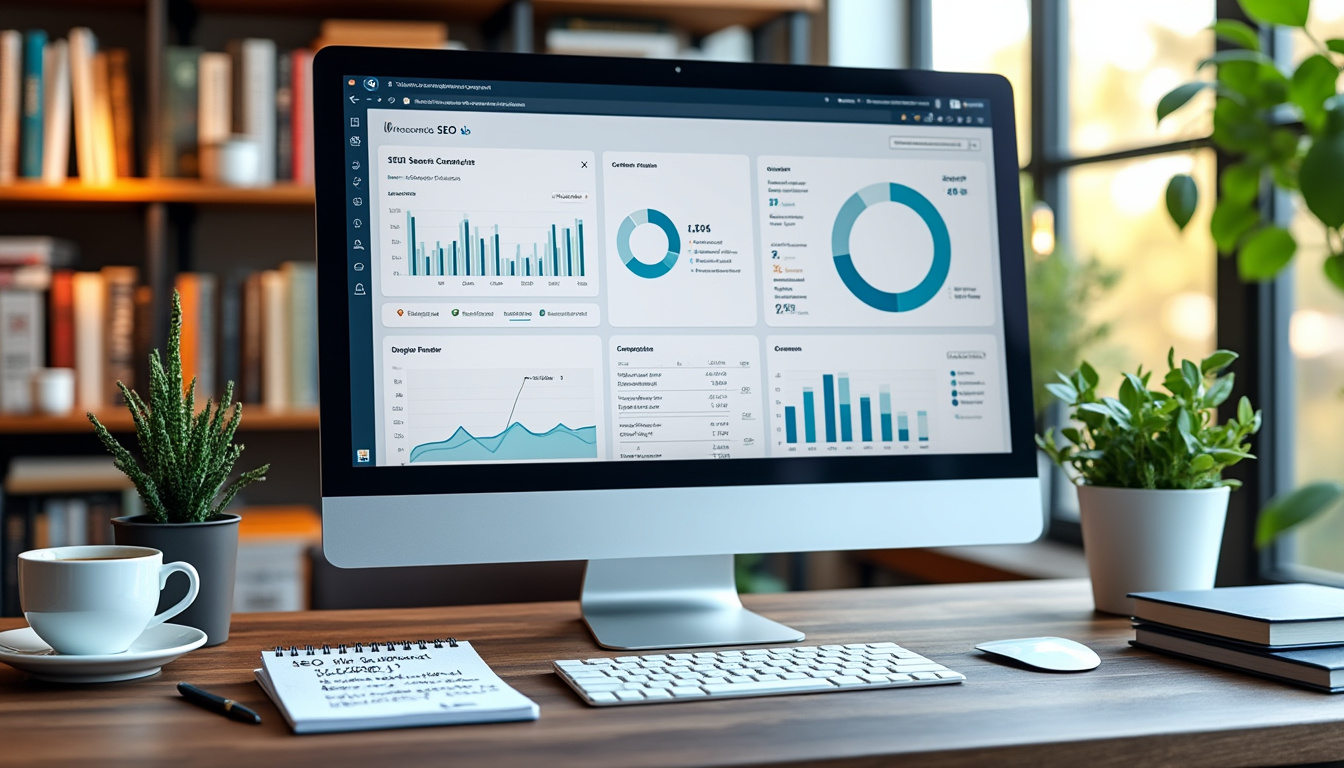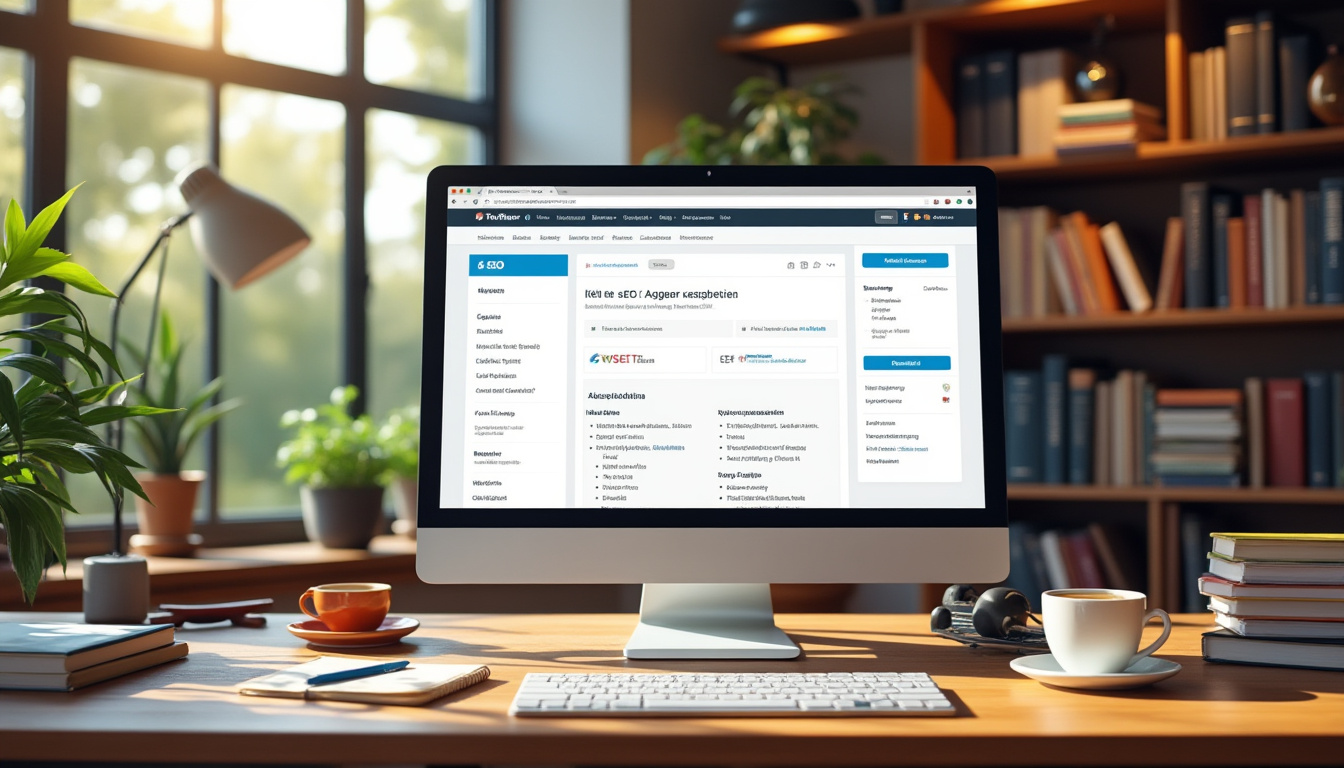Experiencing a sluggish WordPress website can be frustrating, but there are effective strategies to enhance its performance. Start by choosing high-quality hosting, as poor hosting can significantly affect speed. Implement caching solutions to store server responses, reducing load times. Regularly audit your site for unused CSS, JavaScript, and HTML scripts, optimizing or removing them as necessary.
Image optimization is also crucial—reduce file sizes without compromising quality to speed up load times. Additionally, consider using plugins for performance analysis, like Query Monitor, to identify slow queries. Finally, ensure your themes and plugins are lightweight and up-to-date, as outdated or bulky components can severely impact site speed.
A slow WordPress website can frustrate users and negatively impact your SEO rankings. This guide addresses common issues that contribute to slow load times and outlines effective solutions, allowing you to enhance your site’s performance efficiently. From choosing the right hosting provider to optimizing images, managing plugins, and more, this article provides a comprehensive overview of how to transform your sluggish site into a speedier, more efficient platform.
Understanding WordPress Performance Issues
Before diving into solutions, it’s crucial to understand the various reasons why a WordPress site may be slow. Identifying the root causes can help you apply the right fixes and boost your website’s speed.
Common Causes of Slow Loading Times
There are numerous factors that can contribute to a slow loading website. These may include:
- Poor hosting choices that do not provide enough resources.
- Heavy and outdated themes that cause excessive load times.
- Too many plugins that can lead to conflicts or increased latency.
- Lack of caching which allows for quicker access to site data.
- Unoptimized images that take longer to load.
- Unused CSS, JavaScript, and HTML that burden your site’s performance.
Choosing the Right Hosting Plan
One of the most significant factors impacting your site’s speed is the quality of your hosting. Opting for a reliable and high-performance hosting provider is essential. Avoid bargain basement options as they often lead to slow, unreliable service.
Consider platforms known for optimized WordPress hosting, such as managed services. These services often include features that enhance speed, such as server-side caching, optimized environments, and excellent support.
For more insights on quality hosting options, check out this resource.
Implementing Caching Solutions
Caching involves storing copies of files or data temporarily so that they can be accessed more quickly. Using a caching plugin can significantly enhance your website’s speed.
Two popular caching plugins are:
- WP Rocket: Offers advanced caching options that improve loading speeds and user experience. More information can be found at WP Rocket Blog.
- W3 Total Cache: Provides comprehensive caching solutions and improves SEO by increasing site performance.
Optimizing Images
Images are often the largest files on a webpage, which can lead to slower loading times. To mitigate this:
- Use image compression tools to minimize file size without losing quality.
- Implement responsive images that adapt to various device sizes, ensuring quicker loads.
- Consider using lazy loading, which only loads images when they are visible on the user’s screen.
For guidance on effective image optimization, see this resource.
Managing Plugins Wisely
Plugins can enhance functionality but can also slow down your site if not managed properly. It’s essential to:
- Limit the number of active plugins to those necessary for your site’s performance.
- Regularly update plugins to maintain compatibility and performance.
- Deactivate and delete any plugins that are no longer used or cause issues in your website.
Streamlining Code
Cleaning up your site’s code is vital for improved speed. Focus on:
- Removing unused CSS and JavaScript files, which can reduce load times.
- Minifying code to compress your files and remove extra spaces and comments that are not needed.
- Utilizing tools like Query Monitor to identify slow queries and optimize them.
Monitoring Performance Regularly
Regularly check your website’s performance to identify and address issues promptly. Use online tools such as:
WordPress Support to gauge page speed and performance.
Improving Database Efficiency
Your WordPress database can become bloated over time, negatively impacting performance. Optimization techniques include:
- Regularly cleaning up unwanted posts, revisions, and comments.
- Using plugins that optimize and repair your database, like WP-Optimize.
The Impact of Backlinks
Understanding the role of backlinks on your blog SEO is crucial. Good quality backlinks can improve your credibility and search engine ranking, leading to increased traffic, which is essential for enhanced loading and performance. For insights, visit this guide on backlinks.
Utilizing a Content Delivery Network (CDN)
A Content Delivery Network can significantly reduce load times by distributing your website’s static content across multiple servers worldwide. This allows users to access your site through servers that are geographically closer to them, thus speeding up loading times.
Popular CDN options include Cloudflare and StackPath.
Keeping WordPress Updated
Ensure your WordPress core, theme, and plugins are always updated to the latest versions. Updates often contain performance improvements and bug fixes that can enhance site speed.
Implementing Gzip Compression
Gzip compression significantly reduces the size of your website’s files, which leads to faster transfers between the server and a user’s browser. This can be easily implemented through plugins like W3 Total Cache or handled within your website’s settings.
Evaluating the Theme Choice
The theme you choose can greatly influence your site’s speed. Opt for lightweight themes optimized for speed, and avoid those with excessive features that you do not need. This step can significantly enhance site performance.
Reducing HTTP Requests
Each file loaded on your site creates an HTTP request, which can slow down performance. Minimizing HTTP requests involves:
- Combining multiple CSS and JavaScript files into single files.
- Using CSS sprites to reduce the number of images required to load.
Addressing the various factors contributing to a slow WordPress website requires a comprehensive approach. By choosing the right hosting provider, effectively managing plugins, optimizing images, and regularly monitoring performance, you can create a faster, more responsive site that enhances user experience and boosts SEO rankings.

Experiencing slowness with your WordPress website can be frustrating for both you and your users. This guide will explore various methods to enhance the loading speed of your site, ensuring smoother navigation and a better user experience. From improving hosting options to optimizing your site’s resources, we’ve got you covered with actionable steps and essential tips.
Choosing High-Quality Hosting
The foundation of a fast WordPress site often begins with your hosting provider. If you’re using a low-cost hosting solution, it may be time for an upgrade. High-quality hosting providers offer better server performance, which can directly impact your website’s speed. Opt for a managed WordPress hosting service, as these providers specialize in optimizing their servers for WordPress performance.
Implementing Caching Solutions
Caching is an effective way to speed up your WordPress site. By creating static versions of your content, caching reduces the number of requests your server must process. Use plugins like W3 Total Cache or WP Super Cache to implement caching and significantly improve load times. These plugins can also help manage and minify files, further enhancing performance.
Optimizing Images
High-resolution images can slow down your site if not optimized properly. Ensure that you compress and resize images before uploading them to your WordPress site. Numerous plugins, such as ShortPixel or Smush, can automate this process for you, ensuring that images are not only visually appealing but also load quickly.
Removing Unused Scripts and Styles
Every piece of unused CSS and JavaScript contributes to your website’s slowness. Conduct a thorough audit of your site and eliminate any unnecessary scripts and styles. This can drastically reduce the overall size of your site, leading to faster load times. Tools like Query Monitor can assist in identifying these excess resources.
Regular Maintenance
Routine maintenance goes a long way in ensuring optimal performance. Check for and fix broken links, remove outdated plugins, and keep your WordPress core and themes updated. Regular maintenance can help spot potential issues before they escalate, providing a smoother user experience overall.
Diagnosing Performance Issues
If your website continues to load slowly despite optimizations, it may be time to troubleshoot specific areas. Check for plugin conflicts by deactivating them one at a time to see if performance improves. You can also use tools like Google PageSpeed Insights or GTmetrix to run speed tests and gather insights on specific issues impacting your website’s speed.
Utilizing Content Delivery Networks (CDN)
A Content Delivery Network can enhance your site’s performance by distributing the load across multiple servers. This not only speeds up content delivery to users based on their location but also reduces the burden on your primary server. Consider implementing a CDN service like Cloudflare or StackPath for better global reach and speed.
For more comprehensive information on troubleshooting slowness in WordPress, you can refer to additional resources like the article on Why is My WordPress Site So Slow? and troubleshooting tips offered by GoDaddy. If you’re looking to integrate Google Search Console more effectively with your site, visit this guide.
Common Issues and Solutions for Slow WordPress Websites
| Issue | Solution |
| Poor Hosting | Upgrade to high-quality hosting services. |
| Unused Plugins | Deactivate and delete unnecessary plugins. |
| Heavy Themes | Switch to a lighter, more optimized theme. |
| Unoptimized Images | Resize and compress images. |
| Excessive CSS/JS | Remove unused CSS and JavaScript files. |
| Lack of Caching | Implement caching solutions like plugins. |
| Database Bloat | Regularly clean and optimize the database. |
| External Embedded Content | Limit the use of external embeds to improve loading times. |
| Slow Server Response | Consider using a Content Delivery Network (CDN). |
Experiencing a slow WordPress website can significantly impact user experience and SEO rankings. This article outlines effective strategies to enhance your site’s performance, focusing on simple yet powerful adjustments anyone can implement, from hosting solutions to plugin management and image optimization.
Choose Quality Hosting
One of the most crucial factors affecting your WordPress website’s speed is your hosting provider. Opting for high-quality, reputable hosting services over budget options is essential. Good hosting ensures faster server response times and better overall performance. Consider upgrading to a plan that meets your website’s traffic demands and functionality.
Implement Caching Solutions
Caching is a technique that stores a static version of your site to deliver it more quickly to visitors. Utilizing a caching plugin can improve load times significantly. Popular caching plugins like W3 Total Cache or WP Super Cache simplify the caching process and ensure that your site loads faster for repeat visitors.
Optimize Your Images
Heavy image files can drastically slow down your website’s loading speed. Therefore, optimizing images is crucial. Compress images using tools such as Smush or ShortPixel, which will reduce file sizes without losing quality. Additionally, using the correct file format for images (JPEG for photos and PNG for graphics with fewer colors) can also contribute to improved loading times.
Reduce Unused CSS and JavaScript
Unused CSS and JavaScript code can bloat your site, leading to increased load times. Use plugins designed to remove or minimize unused code, such as Autoptimize. This can streamline your website’s functionality and help it load faster by eliminating unnecessary files that slow down performance.
Check and Deactivate Unnecessary Plugins
While plugins add functionality to your WordPress site, too many can add latency. Regularly review your plugin list and deactivate those that are not essential. You can use performance monitoring plugins like Query Monitor to identify which plugins are causing slowdowns. Deactivating or replacing resource-heavy plugins with lightweight alternatives can greatly speed up your site.
Use a Lightweight Theme
The theme you choose for your WordPress site plays a significant role in your site’s speed. Opt for a lightweight theme that is optimized for speed. Themes with excessive features and complicated layouts can adversely affect performance. Check theme ratings and user reviews to find one that promises both aesthetic appeal and fast loading times.
Regularly Update WordPress and Its Components
Keeping your WordPress core, themes, and plugins up to date is vital for security and performance. Outdated components can slow down your site and expose it to vulnerabilities. Enable automatic updates, if possible, or make a habit of checking for updates regularly to ensure everything is current.
Optimize Your Database
Your WordPress database can accumulate unnecessary data over time, such as post revisions and spam comments. Cleaning up your database can enhance performance. Use plugins like WP-Optimize to regularly clean and maintain your database, keeping it leaner and more efficient.









